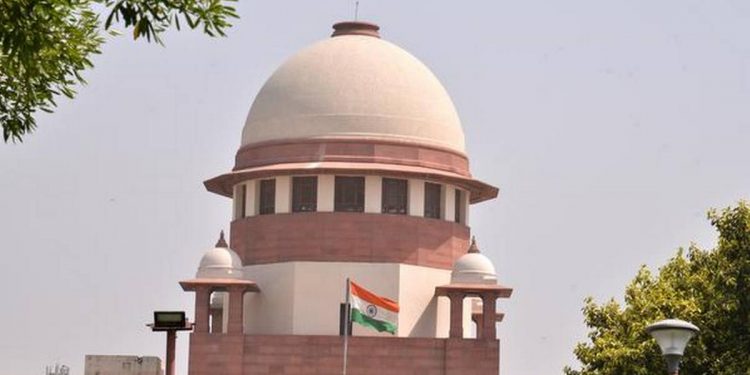New Delhi: The Supreme Court Friday asked the foreign nationals blacklisted for allegedly participating in the Tablighi Jamaat event in Delhi’s Nizamuddin area in mid March to send the copy of their petition, in which they have challenged the Ministry of Home Affairs’ order blacklisting them, to the Centre.
A bench comprising Justices A.M. Khanwilkar, Dinesh Maheshwari and Sanjiv Khanna scheduled the matter for further hearing on Monday, and sought response from the Centre and the state governments.
Senior advocate Salman Khurshid, representing the petitioners, exhibited the press releases. The bench replied, “Where are the orders?” Khurshid then argued that there are many people, and they have not issued notices to all the individual persons.
The apex court asked Khurshid to serve the copy of the pleas to the agencies. The Press Information Bureau (PIB) had on April 2 communicated the Centre’s decision to blacklist as many as 960 foreigners from 35 countries.
The Director General of Police of all the states and Union Territories and the Delhi Police Commissioner also issued orders to register FIRs against such foreign nationals.
The petitioners contended in their plea that April 4, the Centre further blacklisted around 2,500 foreigners, who were in India, from travelling to India for a period of 10 years. But, no press release has been issued on this so far.
“The impugned decision, by its very unilateral nature, infringes the principle of natural justice, particularly, audi alteram partem by blacklisting the aforementioned foreigners present in India without first granting an opportunity of being heard, resultantly depriving the aggrieved foreign nationals of their right of locomotion and travelling back to the country of their citizenship,” said the plea of the foreigners.
More than 30 petitioners, who moved the top court, submitted that they had to forfeit their passports to the state administration after the registration of the FIRs, which led to deprivation of personal liberty, without following the procedure established under the law.
“All human beings are born with some unalienable rights like life, liberty and pursuit of happiness. The importance of these natural rights can be found in the fact that these are fundamental for their proper existence and no other right can be enjoyed without the presence of right to life and liberty. Life bereft of liberty would be without honour and dignity and it would lose all significance and meaning and the life itself would not be worth living,” said the plea.
IANS







































